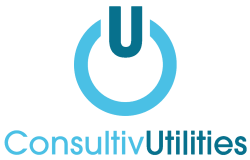SECR is a mandatory annual requirement for large organisations in the UK. It requires the public disclosure of energy usage and carbon emissions within their directors’ annual report.
Who needs to comply with SECR?
Qualification follows the Companies Act 2006 definition of a “large organisation”, which requires at least two of the following criteria within a financial year to qualify:
- 250 employees.
- Annual turnover of at least £36m.
- Annual balance sheet of at least £18m.
SECR: What you need to know
SECR was brought in by the department for Business, Energy and Industrial Strategy in 2019 to encourage large organisations to adopt energy efficiency measures and adopt a net zero strategy. While it is important to note that there are substantial financial penalties for businesses that fail to comply with the regulation, we prefer to help organisations see SECR as an opportunity to improve their environmental credentials and save money in the process.
Not sure if you need to comply?
Why is SECR necessary?
Due to mounting pressure on the UK to meet carbon emissions targets, the government launched SECR to ensure that there is accountability amongst larger businesses for their role in climate change.
Some may wonder why SECR is necessary when ESOS already exists, but the Energy Savings Opportunity Scheme only applies to larger entities under the EU definition, and only requires reporting every four years. As such, ESOS alone cannot be relied upon to generate the year-on-year carbon savings required to accurately monitor the changes to the climate.
SECR provides frequent and accurate carbon reporting. This streamlines multiple financial and carbon reports, making it easier to mitigate emissions and achieve lower carbon levels from businesses.
Any large business complying with SECR must report their energy use and greenhouse gas emissions, or else face the risk of fines and civil penalties.
FAQs
Are SECR reports publicly available?
Yes, Streamlined Energy and Carbon Reporting (SECR) reports are publicly available as they must be included in a company’s annual directors’ report, which is filed with Companies House. This ensures transparency and allows stakeholders, including investors and the public, to access information on the company’s energy use, greenhouse gas emissions, and energy efficiency actions.
What is the difference between ESOS and SECR?
ESOS is a mandatory UK scheme requiring large organisations to conduct energy audits every four years to identify energy-saving opportunities, focusing on regulatory compliance without public disclosure. In contrast, SECR (Streamlined Energy and Carbon Reporting) requires qualifying organisations to annually report their energy use, carbon emissions, and energy efficiency measures in their directors’ report, which is publicly accessible. ESOS focuses on periodic audits, while SECR emphasizes ongoing transparency and public accountability.
Who is exempt from SECR?
Organisations exempt from SECR include those classified as “low energy users,” defined as using 40,000 kWh or less of energy during the reporting period. Additionally, certain small and medium-sized enterprises (SMEs), defined as having fewer than 250 employees, an annual turnover not exceeding £36 million, and/or an annual balance sheet total not exceeding £18 million, are also exempt. Non-profit organisations that do not fall under the Companies Act 2006 or are not required to produce a directors’ report are typically exempt as well.

